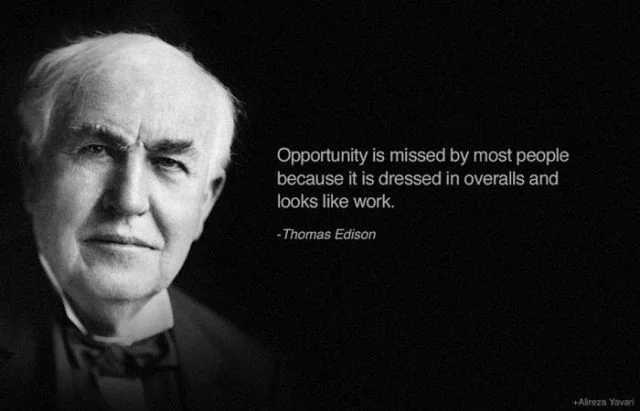Do you ever tire of the constant doomsday fear-mongering that happens in the political commentator space? I used to listen to the Daily Wire every day. I went from listening to Ben Shapiro to Matt Walsh and back to Ben. I loved getting Dave Rubin’s take on certain issues and I even have to admit with great shame that I used to enjoy listening to Steven Crowder.
Over time, I got sick of the constant negativity. I was bored with the persistent anger, and sometimes borderline hatred, for those who held different opinions. Now, I can certainly get infuriated by the people who promote abortion or those of the LGBTQ community who prey on young, innocent children. There is undoubtedly a time and place for righteous anger. But I knew that dwelling on these things every afternoon was neither good for my mental nor spiritual health.
I took a step back and I was lucky to find a new podcast to listen to: The PBD Podcast. I love Patrick Bet-David. He’s an American-loving, capitalism-promoting, super-successful immigrant, Christian, Army veteran. It’s easy to see how he’s my kind of guy. PBD chose a motto for the year and has been putting it on merch all over his website. He came up with the tagline “The Future Looks Bright” to remind conservatives that we can still have hope for the days ahead.
My podcast guest this week, renowned author, speaker, and conservative Gen Z spokesperson Isabel Brown, has a similar message in her most recent book, The End of the Alphabet: How Gen Z Can Save America. When asked about how she remains positive during our interview, she essentially said that it’s all about understanding our context. We will live in an unavoidable shit show until Christ returns. Sure, there are some times that are better than others, but all generations faced their fair share of challenges and setbacks. There is no creating heaven on Earth, despite how much the Communists try to convince us otherwise.
If that is true, how do we fight to create good times? We have all heard the adage that strong men create good times. You may be thinking to yourself, “I want to be a strong man (or woman), so what do I do now, Nathan?” I’m so glad you asked.
There are three things you can do to help create a better world. Well, there’s more than three, but I want to talk about three things here that most people avoid. Seeking Excellence is all about doing the hard things that most people run away from. We have a small audience here because most young Catholics would rather take the Socrates route of keeping their heads perpetually in the theological clouds than face the hard reality of the need to work out, budget, and the other practical demands of a good life.
Action #1: Fasting
Last week, I was blessed to spend a few days in Winter Park, CO with my wife, son, and several of our friends who make up the team at West Coast Catholic. You truly can’t beat a little getaway with some amazing people. We spent a lot of time in the hot tub, sitting by the fire, or around the dinner table just having great conversations and dreaming about our individual and collective futures.
Don’t judge us (I’ll explain more at another time), but we somehow landed on the topic of ‘fat priests’ during one of our late-night conversations. We bemoaned the fact that so many priests, lay Catholics, and Americans in general have become so unhealthy and overweight. We recounted stories about priests who had to sit to distribute Communion or who were unable to genuflect. We all had stories and examples to share, which was disheartening. Priests are representative of Christ on earth, which is harder to see when they are so overweight that they can hardly get around without assistance. Gluttony, though often ignored, is still one of the seven deadly sins.
Perhaps the reason that it’s hard to see Jesus in an extremely obese priest is because Jesus preached and lived a life of prayer and fasting. The saints have reaffirmed the goodness of fasting throughout the ages as well:
“For we fast for three purposes: (1) to restrain the desires of the flesh; (2) to raise the mind to contemplate sublime things; (3) to make satisfaction for our sins. These are good and noble things, and so fasting is virtuous.”
-St. Thomas Aquinas
“Fasting cleanses the soul, raises the mind, subjects one’s flesh to the spirit, renders the heart contrite and humble, scatters the clouds of concupiscence, quenches the fire of lust, kindles the true light of chastity.”
-St. Augustine
We have largely abandoned the practice of fasting in the Church. It used to be common for people to fast and abstain from meat on every Friday throughout the year, along with many other days on the Liturgical calendar. We are still called to practice some type of fasting on Fridays, but most people forget to do so or simply choose not to. Fasting has incredible personal benefits when it comes to your journey to sainthood, but it also has larger cultural implications.
In Mark 9, Jesus casts out a particularly strong demon out of a young boy. By this point, the disciples were accustomed to casting out demons in Jesus' name all by themselves. They had gotten used to exorcisms and healings by their own hands. This one, however, refused to leave the boy until Jesus came along.
After he rebukes the demon and casts him out of the child, the disciples ask Jesus why they could not do so. He responds to them by saying, “This kind can go out by nothing, but by prayer and fasting” (emphasis added).
In our culture today, we can easily see the immense progress made by satan and his minions. They have convinced many to abandon faith, truth, and reason. This has resulted in a society that knows not truth, beauty, or goodness. We have prayed for these spirits to leave our loved ones, our communities, and our country for long enough. It’s time we begin to embrace the wisdom of Mark 9:28 and bring forth the power combo of prayer and fasting to fight off this evil spirit plaguing our generation.
Action #2: Educate Yourself
Around ten months ago, Dave Ramsey conducted an onstage interview with Dr. Jordan Peterson at the Entreleadership Conference. There is a clip that has recently gotten more attention, where Peterson rebuked Ramsey’s statement that it’s often not worth engaging with people with vastly different beliefs and viewpoints on cultural and political topics. Peterson affirms that we should, in fact, engage with people who see things differently than we do. He goes so far as to imply that we have a moral obligation to be well-formed enough on important topics to be able to instruct and correct people in the way of truth and goodness.




















